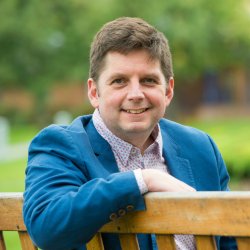Former PhD student writes on ‘Physics in the pandemic’ from Wuhan
Professor Tao Wang, an experimental physicist at Wuhan University of Technology in China, who completed his PhD at Surrey in 2009, has written an article for Physics World giving an insight into academic life during the COVID-19 outbreak.
In his article, ‘Physics in the pandemic’, Professor Wang describes his experiences during the 11 week lockdown in Wuhan, the first epicentre of the virus, and documents the first signs that life is beginning to return to normal.
“This new normality won’t be the same as the one that existed before,” he writes. “It is going to change our society in ways we haven’t fully anticipated. I hope the changes are positive rather than negative.
“In my professional life, the lockdown gave me time to look back and think over what I have done in my research activities over the past few years, and particularly to evaluate whether they are as methodologically robust as they could be.”
Professor Wang’s research focuses on creating new semiconductors and device architectures for optoelectronic devices such as solar cells. As a PhD student at Surrey, he worked under the supervision of Professor Joseph Keddie of Surrey’s Soft Matter Group, working on designing functional materials by blending polymers and carbon nanotubes.
The partnership between the academics has continued, with Professor Keddie visiting the Wuhan University of Technology and becoming an Honorary Visiting Professor in 2018, and a student from the University now on a scholarship at Surrey, working in the Soft Matter Group.
After his PhD, Professor Wang was recognised as a Young Achiever of the Year in the Vice-Chancellor’s 2016 Alumni Awards.
He comments: “My PhD at Surrey initiated my research career, so I’d like to thank everyone in the Physics Department and at the University. I wish all university students and staff the best, and hope they stay healthy and safe while working during the COVID-19 outbreak.
Read Professor Wang’s article in Physics World.
Discover our courses in physics including our Physics PhD.
